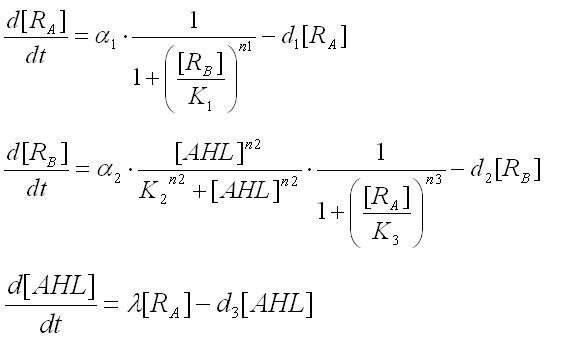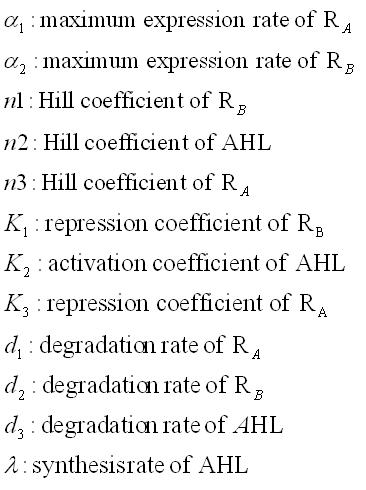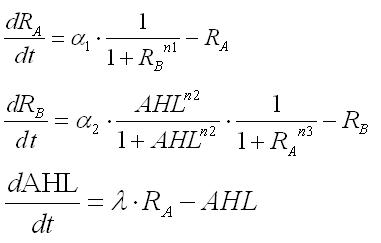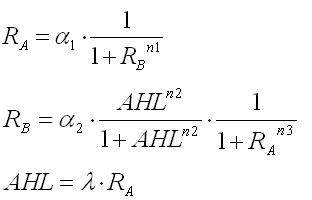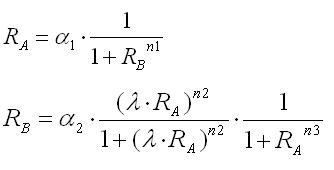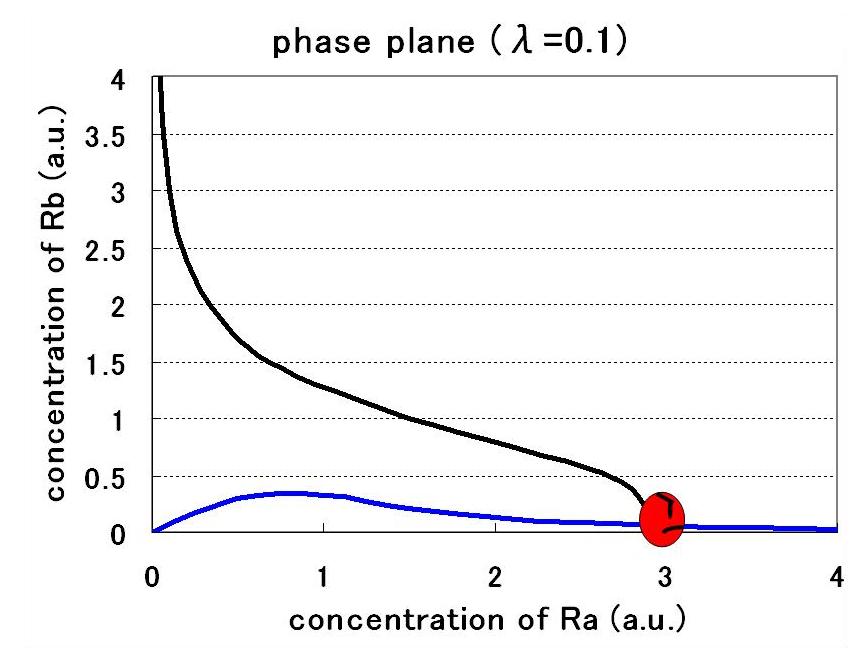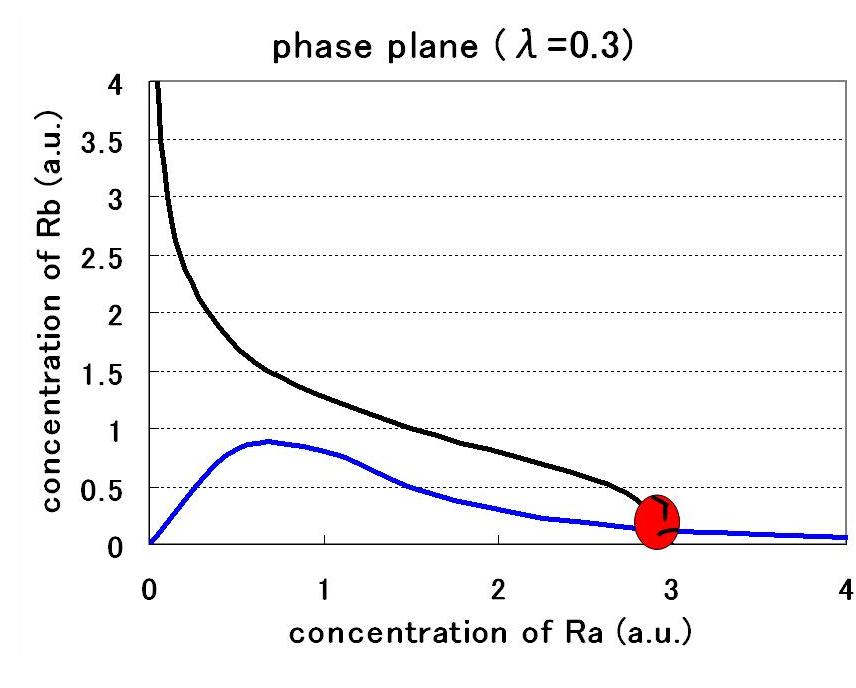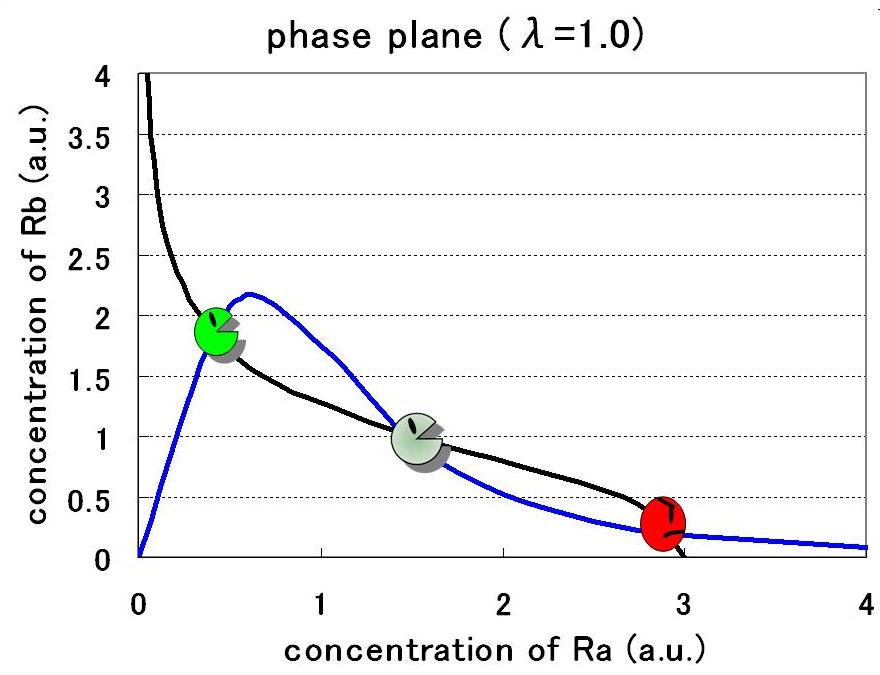Tokyo/Formulation/3.AHL-experssing model
From 2007.igem.org
(Difference between revisions)
| Line 27: | Line 27: | ||
<br>[[Image:Phaseplane3-1.jpg|300px|left|thumb|Figure 3.1.A]] [[Image:Phaseplane3-2.jpg|290px|left|thumb|Figure 3.1.B]] [[Image:Phaseplane3-3.jpg|270px|none|thumb|Figure 3.1.C]] | <br>[[Image:Phaseplane3-1.jpg|300px|left|thumb|Figure 3.1.A]] [[Image:Phaseplane3-2.jpg|290px|left|thumb|Figure 3.1.B]] [[Image:Phaseplane3-3.jpg|270px|none|thumb|Figure 3.1.C]] | ||
| + | <!-- | ||
== == | == == | ||
[[Tokyo/Formulation/3.AHL-experssing model|Step.3]] >> [[Tokyo/Formulation/4.population_model|Step.4]] | [[Tokyo/Formulation/3.AHL-experssing model|Step.3]] >> [[Tokyo/Formulation/4.population_model|Step.4]] | ||
| + | --> | ||
Revision as of 18:35, 26 October 2007
Works top 0.Hybrid promoter 1.Formulation 2.Assay1 3.Simulation
Step1 Step2 Step3
Step.3 Single cell model with hybrid promoter and cell-produced AHL
The differential equaitons of the system considering AHL produced by E.coli themselves were given as
These equations were normalized as follows:
In the steady state,time derivatives are zero.As a result,the nullclines of this system were derived as
By substituting the third equation into the second,the nullclines for Ra and Rb were obtained as
Therefore, the phase plane of this system can be plotted as Fig.3.1.A-C and the number of equilibrium points were decided by the value of the parameters:
